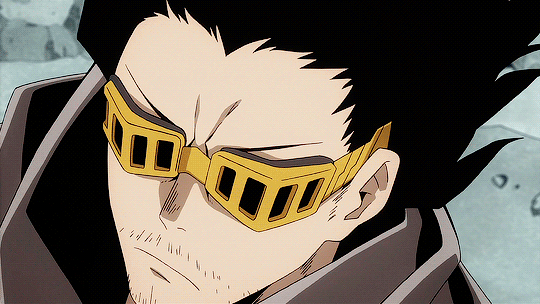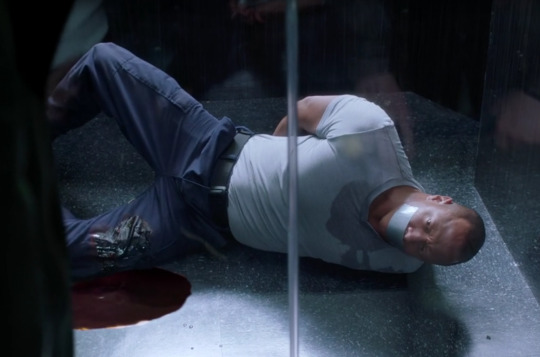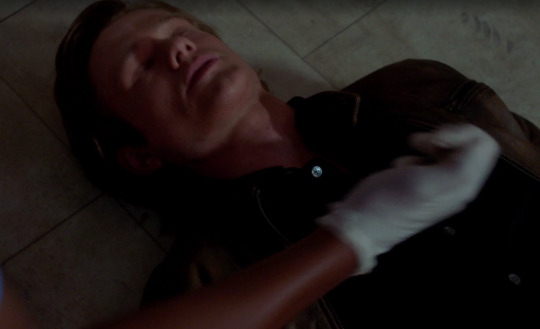#im venting on my personal blog that he doesn’t have access to not taking it out on him
Explore tagged Tumblr posts
Text
love when i go sit somewhere specifically to be out of my room for a while without the constant threat of being percieved only for my dad to decide he needs to go clear out the shed right on the other side of the flimsy plywood wall w/ several screened sections (which i did a fantastic job of ignoring) followed by just straight up coming in & loudly wrestling with the dogs right behind me
(putting a read more here because i continue to be incapable of being concise & this little vent turned into more of a rant oops)
yes, he’s fully aware that i only go hang out in common spaces in the house when i expect them to be empty. yes i’ve explained to him that if he is in the same room with me, even if he’s just sitting there quietly, my brain instinctively goes into defense mode & ruins any focus, peace, or relaxation i may have achieved unless i’m properly mentally prepared for it, which is a big reason why i don’t usually hang out in the common spaces. yes, he knows & has acknowledged that this reaction is entirely because of the trauma he caused me growing up, & the precedent he’s set since of being physically unable to be in the same room as me without making whatever remark he can think of every minute to try & start a conversation.
yes, this is also the man that’s constantly telling me i should spend more time out of my room. but i didn’t explicitly tell him i wanted to be alone this time so of course it’s not gonna bother me, right?🙄
like yeah i see so many other signs that he’s making progress every day & it was almost certainly not his conscious intention to bother me, but like, it never is. it never has been, according to him. never stopped him from abusing us!
he needs to accept if he wants a relationship with any of his children it has to be on our terms. if he keeps treating every step forward as an invitation to resume trying to force his way back into our lives he WILL lose all of us. im by far the most lenient & empathetic towards him of his children, but im fucking sick of him taking my kindness for weakness
#im aware it’s petty to get mad at my father for simply existing in my vicinity on his own property#i also do not care#im venting on my personal blog that he doesn��t have access to not taking it out on him#(can you tell i was raised in an environment where i was made to feel guilty for privately venting to people i trust??)#vent post#bissy talks#also there’s four other separate sitting areas outdoors alone#like he had plenty of options for where to take a break#he’s put so much time & effort into putting outdoor seating areas everywhere he possibly could you’d think he’d be willing to use one
0 notes
Note
hello!! i've been scrolling through your blog for a bit and aaa i love it!! i hope you're doing okay, i'm hoping for a romantic mha matchup please, but if you're out of slots or don't write for it, feel free to delete this :] i have a male preference!
i'm 5ft6, she/they, have an alt emo type style so lots of dark colours, nails always painted black.
i'm a slytherin, love snakes and cats and dream of owning (at least) one of each, drawing in my sketchbook, playing videogames (lots of rpg and horror), iced coffee and energy drinks and listening to music. for dislikes, i hate spiders, warm weather, and i hate when people are passive aggressive, indirect, and just beat around the bush in general. i hate being touched by people i don't know well/aren't friendly with but once i'm close with someone i can much better tolerate physical affection.
personality wise im quiet around people, not cause i'm shy but cause i never have that much to say around those i'm not familiar with, though around friends i get louder, very snarky and sarcastic but affectionately. i'm a blunt person in general, though with tact, i'd never intentionally say something that i know would upset someone. i have trust issues but once i'm close with someone i'm an open book. when i do trust, i trust hard, and if that's broken i consider the relationship unmendable. i also consider myself fairly confrontational, but in the "never start it, but always finish it" type of way. i tend to be the "mom friend", always have an overprepared bag with me, and i love taking care of people, both in a letting them vent to me way and in a "have you eaten? have you drank?" way.
future wise, i hate the idea of having to "settle down", the whole nuclear family and 9 to 5 and white picket fence thing being a nightmare that haunts me. i don't hate them but i don't want babies and i don't see much point in marriage but wouldn't be that against it if my partner really wanted it.
that's all, hope i didn't ramble too much, and thank you very very much for doing these, you're amazing! :]
Hello lovely! I hope you like your matchup! I’m so glad you like my blog!
I pair you with… Aizawa Shouta!

So Aizawa is taller than you at 6’0” exactly, and that just means you’re the perfect height for him! He also wears a lot of dark colors and wouldn’t be opposed to you painting his nails! I envision Aizawa as either a Slytherin or Gryffindor! I’m leaning more towards Gryffindor, though :) But that just means you two are a great couple with both wit and bravery!
Aizawa would be totally down for owning a cat! Not sure about snakes, but cats are a must for him! He loves to watch you sketch in your sketchbook and will happily catch any spiders and take them outside (or kill them if you ask him). He isn’t super physically affectionate, but he does like holding your hand or having an arm around your shoulders to keep you close (but only if you like it, if not, he keeps his hands to himself)
He is also a blunt person! But unlike you, he isn’t afraid to say something that’ll upset others, so maybe you can teach him to be a bit nicer? Anyhow, he understands you have trust issues and would never EVER break that trust. Once you two are dating, he says it’s an honor that you trust him as much as you do. He loves that you are always so prepared to take care of others and finds it amusing when you ask people if they’ve eaten or drank anything that day (Also, check on him, he usually doesn’t eat or drink much during the day).
Aizawa is pretty neutral about marriage! He sees it as a piece of paper that bind two people together that are already attached in his mind. I think the only reason he would propose was so you could have access to the perks of being a pro heroes spouse. So like better security, more money, stuff like that.
#fairytailwzard matchups#fairytailwzard matchup#my hero academia#boku no hero academia#bnha#mha#aizawa shouta#shouta aizawa#my hero academia aizawa#boku no hero academia aizawa#bnha aizawa#mha aizawa
2 notes
·
View notes
Text
3-Quinuclidinyl Benzilate is My New Favorite Chemical Weapon, A “Mason+Cable+Choices” Medical Review
This episode. This freaking episode.
First of all, Charlie Robinson, who I really thought was going to stick around in this version of the series after he survived his first episode, had to go and become the instrument to someone else’s revenge scheme. We also got to see a relatively hard side of Mac in the interrogation room, and I’m not sure whether to applaud it as character development or feel like they’re going too dark.
From a medical and whump standpoint, this episode sure has a lot of things covered- the gunshot wound, the neck needle, the 3-quinuclidinyl benzilate poisoning (Yay!), the heart needle/antidote, and the toxic smoke. I'm warning you now, most of this review is about the 3-quinuclidinyl benzilate poisoning.
The Gunshot Wound

Honestly, there’s not a lot to be said about the gunshot wound- it was to the outside of Charlie’s thigh, so while it would have been painful and probably would have bled some (the duct tape wouldn’t have helped stop the bleeding) it probably wouldn’t have been enough to really threaten his life. If he hadn’t later plummeted to his death, he might have needed some antibiotics, professional medical attention, and physical therapy.
Neck Needles
Neck needles aren’t a thing, but I’ve talked about those in previous posts.
3-Quinuclidinyl Benzilate Poisoning

Oh hey look, we’re already at 3-quinuclidinyl benzilate poisoning! And fam? this is where I really did my research.
If you’ve been on this blog long enough you know I like my chemical weapons. Not in a “kill everyone” way but in more of a “strong academic interest I may one day write a thesis about” way. And man, do I love having access to an academic library again. Whoo buddy. This was fun.
In the episode, Mason uses a chemical weapon called 3-quinuclidinyl benzilate (also noted in the episode as “BZ”), smuggled in a false tooth, to subdue Mac before making his escape from the interrogation room. The tooth contains QNB in an aerosol form, which when released forms a visible cloud in the room. Mac breathes the aerosol, which appears to instantly paralyze or possibly sedate him, while Mason takes advantage of the small amount of uncontaminated air in Mac’s water bottle before making his escape up the air vent. A security team makes their way to Mac, Desi calls for a med team, and Mac is revived with an antidote delivered by a needle straight to his heart.
When someone mentions chemical weapons, most people think of mustard gas or nerve agents. But poisons designed to torture and kill people aren’t the only things that fall into the category of chemical weapons. In fact, there’s a whole class of them, called “incapacitants” that are specifically designed to take people out of commission without a high risk of death or permanent disability.
Let me just say, Jim Adler is a writer after my own heart. He wrote both this episode and “Mac+Fallout+Jack” and considering both were absolutely gut-wrenching and contained reasonable choices of incapacitating agents, I really, really appreciate what he’s done for the canon. He didn’t get everything right here (*cough cough* neck and heart needles *cough cough*), but he clearly understands enough about drugging people to buy some literary license. Not all of it, but some.
Now, as I’ve talked about in other posts, drugging people into unconsciousness isn’t a particularly safe thing to do. Unconscious people can’t protect their airway, and most drugs that render people unconscious significantly impact their respiratory rate, blood pressure, or both. Unless the party doing the drugging is prepared to devote at least one trained person to monitoring and management of the drugged individual, there’s a chance that person could suffocate and die. Paralytic agents have a lot of the same issues.
This becomes even more problematic if you’re trying to incapacitate multiple people. Case in point- in 2002 a small group of Chechan rebels held over a 1,000 Russian civilians hostage in a theater in Moscow. After several days, in order to end the stand-off, Russian military personnel used what was probably an aerosalized opioid* to render everyone in the building unconscious. They then stormed the building and rescued the hostages. Unfortunately, even though antidotes were available and used, about 1 out of every 10 hostages ended up dying due to the mass drugging, which didn’t win any PR points for the use of incapacitating agents.
But if you get just slightly more creative, sedation and paralysis are not the only two ways to drug enemy combatants into uselessness. Turns out, a variety of hallucinogens and deliriants can achieve the same goal without the same risk of death by suffocation. If you can get someone to a state where they can’t remember what they’re doing or perform basic skills like reading or decision making, they can’t easily attack and kill your own personnel.
This is where 3-quinuclidinyl benzilate, (NATO code BZ, US Army code EA-2277, Soviet code Substance 78, and usually referred to as “QNB” in medical circles) starts to stand out. QNB is a deliriant and hallucinogen. Now, there are lots of drugs that fall into these categories- think LSD, ketamine, PCP, and atropine to name a few. QNB works very similarly to atropine, by selectively blocking the action of the neurotransmitter acetylcholine (think the opposite of a nerve agent), but with significantly more of its action concentrated around the mind-altering side-effects. It’s also safer, hardier, more versatile, and has a more ideal onset and duration of action.
The typical course of incapacitation with QNB involves:
An initial period of progressively worsening anxiety, restlessness, and confusion
A period of extreme drowsiness
Finally, more confusion, an inability to perform simple tasks, difficulty with movement, hallucinations, and bizarre behaviors including picking at things, which all gradually wane over the course of 2-4 days.
Here are some reasons QNB stands out as a particularly effective incapacitant (and all the ways the episode ignored them):
The first is therapeutic index. A drug’s therapeutic index is the difference between its effective dose and it’s toxic dose. If we say a drug has a “narrow” therapeutic index, that means there’s a very small difference between an effective dose and a toxic one, while a “wide” therapeutic index means that the two doses are very different. When drugging someone without their knowledge, no matter how you’re delivering the drug, it’s really hard to estimate the actual ingested dose. Because of this, you want the widest possible range of effective-but-not-deadly doses you can have- the best drugs for mass druggings are those with the widest possible therapeutic indices.
QNB happens to have a very wide therapeutic index compared to other possibilities for incapacitants. The lowest effective dose is about 150 micrograms, while a toxic dose is more than 650 times that at about 100 miligrams. In small doses, the drug doesn’t last as long and causes more sedating vs delirious effect, but is still very useful in lowering the effectiveness of an enemy force.

The second is its options for route and availability in an environment. How any drug is given is referred to the route of administration. These can include:
PO (oral- taken as a pill or liquid)
IV (intravenous- injected into a vein)
IM (intramuscular- injected into a muscle)
SC (subcutaneous- injected into fat)
IO (intrasseous- injected into a bone in an emergency)
Inhaled (breathed and absorbed through blood vessels in the lungs)
PR (rectal- given rectally)
Transdermal (absorbed through the skin)
Most drugs work best when administered a certain way, and some may only be produced for use by a certain route. Some, like ketamine or LSD, can’t be absorbed in the stomach, so giving them orally doesn’t work (LSD “tabs” are actually absorbed through the mucous membrane in the mouth). QNB’s advantage is that it can be given by any route. You want to drug food or drink? It works. Aerosolize it and pump it into the air? Also works. Inject it IM, SC, or IV? Yes but you might have to answer some questions. Coat something like a doorknob? It goes through skin too!
QNB is particularly suited as an aerosol, not because it readily evaporates, but because it’s odorless. No one would even know they were breathing it until it started working, and even then, they might not know what happened. It also stays in the environment for a long time- up to several weeks depending on conditions- and can survive extreme heat without degrading, so it could be disbursed via explosive (LSD would not survive). Bottom line, everyone that came into that room to rescue Mac was contaminated, probably enough to cause them problems. Also, so was Mason, so take that as you will.

The third is the drug’s onset and duration of action. In the episode Mac is almost instantly incapacitated when the spray hits his face. This is not how any drug works (even via the IV route, the quickest-onset drugs still take at least 15-30 seconds to be felt), but particularly not QNB. QNB has an onset time of about an hour, no matter the route. This is actually beneficial to the drug’s original purpose- if no one shows symptoms from drugging with an odorless aerosol until an hour after exposure, there’s no way to take protective measures. Suddenly everyone’s hallucinating and can’t do basic math. Sucks for that attack plan you were working on.
The fourth and final benefit that QNB provides is both it’s lack of (specific) antidote and the fact that there are no lasting effects. Some people point to physostigmine as a possible antidote, but it’s not perfect and has some incapacitating side effects of its own. As incapacitation with QNB is generally not life threatening, it’s probably better for most people to be cared for in a safe place and ride out the effects. Since it’s also not a carcinogen or mutagen, once the effects subside, there shouldn’t be any additional problems.
Phew. Okay.
Heart Needles

I swear I’ve talked about heart needles before, but I’ll do it again since it hasn’t been recently. In the episode, Mac is injected with an antidote directly into his heart. Now, like we said before, using an antidote wouldn’t really help him much, and its not really necessary. He’s just gonna have to ride it out (I don’t make the rules...).
But they chose to do it, so we should talk about it- in the pre-CPR era, intracardiac injections represented the only way of getting emergency medications like epi to the heart in the case of cardiac arrest. As late as 1992, there were still some groups advocating for it if the patient was in asystole (flatline) and IV or IO access couldn’t be obtained. Mac has excellent veins if I do say so myself, and he also wasn’t coding, so there’s no reason for this to have been a thing in the episode. It’s also never used today.
Also, I’m going to be particularly disappointed if that was just a callback to the similarly inaccurate Pulp Fiction scene. Because this show has already used epi to counter an acetylcholine-based problem, and you already only get to do that once. EPINEPHRINE IS NOT AN ALL-PURPOSE ANTIDOTE.
Jim Adler based on your other work I have to assume you know better.
Also it’s late and I’m not talking about the toxic smoke. See my many posts on cyanide and some time in the future come read my post on carbon monoxide.
*According to the book Chemical Warfare: Secrets Almost Forgotten by James Ketchum, who did a lot of the initial research on chemical incapacitants. Other sources reference the drug used as anything from traditional nerve agents to QNB itself, but the onset times and symptoms initially reported seem to match up better with an opioid than QNB.
R E F E R E N C E S
Awl - X-Ray + Penny - Duct Tape + Jack - CD + Hoagie Foil - Guts + Fuel + Hope - Wilderness + Training + Survival - Father + Bride + Betrayal - Lidar + Rogues + Duty - Nightmares - Seeds + Permafrost + Feather - Friends + Enemies + Border -
54 notes
·
View notes
Text
English Transcript of “Dumb Bitches Podcast”
Introduction
(Introduction music)
All: Dumb Bitches! (children cheering)
Linor: This podcast was created as an academic project for Comics: Seeing Differently with Dr. Galvan at the University of Florida.
Linor: I’m Linor Sevilla and I’m majoring in Psychology.
Jamie: I’m Jamie Alexander and im majoring in English and Advertising.
Erin: I’m Erin Russell and I’m majoring in English. Raisa: I’m Raisa Karim and I’m majoring in Political Sciences.
Erin: This episode revolves around Dumb, a 2018 graphic memoir written and illustrated by Georgia Webber. It explores the life of author Georgia Webber as she struggles with a vocal injury and disability.
Jamie: So, let's get into it! In this Podcast, we will discuss how Dumb raises questions about women’s health issues. There are multiple occasions where medical professionals overlook or minimize Georgia’s symptoms. For example, on page 126...
Topic 1: Women’s Health issues (being taken seriously)
Jamie: ...we see how the words of the male doctor follow Georgia throughout her illness. He says, “I don’t want to tell you it’s all in your head, but you know, your body is affected by stress, and I know it’s hard, but there’s not much I can do.” This kind of language diminishes the seriousness of Georgia’s suffering, which is emphasized through her response, “nobody’s helping me,” as the last element on the two page spread. Also, Webber depicts him as physically more imposing than the other characters on page 126, where he encompasses a disproportionately larger section of the page than Georgia.
Erin: According to a 2017 Harvard Health Blog article by Laura Kiesel, women in pain are much more likely than men to receive prescriptions for sedatives instead of pain medication. 70% of chronic pain patients are women, but 80% of pain studies are conducted on male mice or human men.
Jamie: It’s also important to try to keep in mind that not all people with uteruses or vaginas are women and that these issues also affect non-binary, trans, and other femme-identifying people.
Linor: Have any of you had experiences with chronic pain or dismissive doctors?
Raisa: I have. A little over a year ago, I went to my doctor for a suspected UTI multiple times over the course of 6-9 months. The urine tests would often come back negative, so I’d go back and she would prescribe me antibiotics anyway. The UTIs would go away, but come back again a couple weeks later. This went on and on and I was in severe pain for months to the point where my issue became chronic. But my doctor at the time continued to be dismissive, telling me to have less sex. That was so sexist! I wasn’t even having sex. I saw another doctor who did a wet mount and it turned out my UTIs were caused by an underlying case of bacterial vaginosis. I’m thankful for her, but my previous doctor’s dismissiveness ruined my ecosystem and now I have chronic yeast infections and BV. It’s tough!
Erin: Oh my gosh, Raisa, that’s awful! I’m so sorry that happened to you.
Raisa: Thanks, Erin.
Linor: These types of interactions with medical professionals can really affect patients’ mental health. They certainly impact Georgia in negative ways, as she has to visit several different doctors before finding one who is able to help her. We will take a look at that right after our segment, “Dumb Tips for Dumb Bitches!”
Dumb Tips for Dumb Bitches
(“Dumb tips for dumb bitches” transitional song)
Raisa: Hey, dumb bitches! The New York Times published an article in 2018 titled “When Doctors Downplay Women’s Health Concerns” by Camille Noe Pagan. Here is a “For Dummies” edition on how to ensure your health concerns are taken seriously with advice from Dr. Powell, the director of the Montefiore Einstein Center for Bioethics, a center which focuses on issues most likely to improve patient care, human subjects research, and health policy.
Erin: Tip one from Dr. Powell is to ask WHY a doctor is giving a certain recommendation and if there is a GUIDELINE for that recommendation.
Raisa: Tip two is to be DIRECT. If you are concerned about your doctor’s recommendations, please express it! A good doctor will be able to take a step back and reassess.
Erin: The third tip is to realize that only you can experience your own body. You most likely are not overreacting if you are concerned. Check your own bias!
Raisa: Finally, a tip from me. This from my own experiences of having symptoms overlooked by doctors. Always get a second, or even third, opinion!
(“Dumb tips for dumb bitches” transitional song)
Topic 2: Mental Health
Jamie: Going back to the discussion of Dumb, negative interactions with doctors can also have impacts on mental health. Georgia mentions not only anxiety, but also her struggle with disordered eating. On page 157, while shopping for food, Georgia thinks “what if my eating disorder comes back.”
Erin: That’s such a big deal and it was surprising to see how off-handed and glossed-over that comment was! I think she included this comment to show how she has a history of mental illness and how her doctor made her so upset that she was worried about the return of her eating disorder. That’s horrible. How do you even deal with something like that?
Linor: Well, Erin, Georgia’s memoir really emphasizes the importance of having a support system when facing pressure in your mental health. Georgia leans on her friend and vents about her struggles with her disability and finds comfort in just being able to speak to someone else about it. It ends up giving her motivation to continue illustrating her comics. Having others to relieve your mental stress can be more healing than you might think.
Raisa: Absolutely, having a support system is invaluable. But also don’t be afraid to reach out to medical professionals about your mental health. Unfortunately, that can be a luxury sometimes and the mental health system isn’t perfect, but, if you’re able, reach out to a psychiatrist to get diagnosed. As someone that has been in the mental health system for a while, having my illness diagnosed validated my feelings. Spending time taking medication and seeing a therapist regularly will also put you on the right track to the road to better mental health. It takes time and that sucks, but don’t give up!
Jamie: If you are experiencing self-harm thoughts, issues with your appetite, or other mental health symptoms please reach out! The UF’s CWC (the Counseling and Wellness Center) offers urgent services 24/7 at 352-392-1575 as well as urgent walk-in sessions during business hours at both of their locations.
Erin: The Center also provides semester-long treatment plans after a triage consultation. Reach out to the CWC for more information on their services! If you are feeling suicidal, you can also call the National Suicide Prevention Hotline at 1-800-273-TALK. That’s 1-800-273-8255.
Linor: What can we do if someone we know is suffering?
Erin: Reach out to that person! If you show them that someone is noticing their suffering and cares, they’re more likely to seek help.
Raisa: If you’re interested in more comics from Georgia Webber, especially ones about her experiences with anxiety and other mental health disorders, you can check out her short comics for free on The Hairpin.
End of Podcast
Erin: While this story does discuss some very serious and difficult topics, it doesn’t only focus on the bad parts of disability. There are several times throughout the narrative that Georgia highlights the positive experiences she’s had while dealing with her disability.
Linor: As we discussed previously, there are times throughout the novel where Georgia has some really positive interactions with her friends as she shares some of what she’s struggling with. There are also points where she’s able to communicate with others without speaking that make her feel a little more secure in her situation. The largest section of positivity is the very end of the graphic novel, illustrated almost entirely in red, where Georgia receives a free session from a vocal coach and begins to focus on caring for herself, mentally and physically.
Erin: We find that it’s really important to make aspects of this narrative positive, and especially notable that the novel ends on a positive note. People who have disabilities should be able to see that they can find joy in spite of and even because of their disability. For this story to end on such a positive note, and with this strong message of caring for and being gentle with yourself, is incredibly impactful, and can provide so much hope to people who may be struggling with their disability.
Raisa: Speaking of disability, we care deeply about making our podcast as accessible as possible. Please check out the rest of our podcast site where we have a transcript of the podcast in both English and Spanish as well as many visual aids. Thank you, and goodnight.
(Ending music)
1 note
·
View note